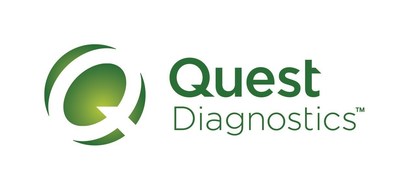Quest Diagnostics to Acquire Haystack Oncology, Adding Sensitive Liquid Biopsy Technology for Improving Personalized Cancer Care to Oncology Portfolio
Quest Diagnostics has announced its agreement to acquire Haystack Oncology for $300 million in cash, with potential for up to $150 million based on future performance milestones. This acquisition aims to enhance patient care through advanced minimal residual disease (MRD) testing technology, focusing on early detection of cancer recurrence. Haystack's expertise in ctDNA technology, developed from research at Johns Hopkins University, is expected to integrate with Quest's existing oncology, genomics, and pathology services. The deal is projected to be modestly dilutive in the short term but accretive by 2026. Quest plans to launch new clinical lab services based on Haystack's technology in 2024, targeting colorectal, breast, and lung cancers.
- Acquisition of Haystack enhances Quest's oncology portfolio with advanced MRD testing technology.
- Expected to broaden access to important tests improving cancer detection and monitoring.
- Potential for significant market growth in the fast-expanding MRD testing category.
- Integration of Haystack's technology with Quest's existing services will enhance patient outcomes.
- Acquisition is expected to be modestly dilutive to earnings over the next three years.
Goal to improve patient outcomes through early, accurate detection of residual or recurring cancer
Haystack's highly sensitive minimal-residual disease cancer-detection technology to be combined with Quest's oncology, genomics and pathology expertise and scale, including solid tumor sequencing, convenient specimen collection and EHR connectivity
MRD testing is a fast-growing category of liquid biopsy tests that identify circulating tumor DNA (ctDNA) in the bloodstream of patients following surgery and treatment for cancer. Founded in 2021, Haystack has developed a ctDNA-based technology specifically for MRD detection, based on 20 years of research and development by world-renowned luminaries from
Following the close of the acquisition, Quest expects to adapt the MRD test developed at Haystack as the basis for new clinical lab services available beginning in 2024. Development efforts will focus initially on MRD tests for colorectal, breast and lung cancers.
"We are excited by the opportunity to work together with Haystack Oncology, a company that we believe has developed a best-in-class ctDNA MRD technology," said
"Combining Haystack with Quest is a major step forward in translating two decades of world-class liquid biopsy research and development into clinical laboratory services that are highly reliable and broadly accessible. Like looking for a needle in a haystack, accurately detecting MRD has been very challenging to date," said
The acquisition will leverage Quest's expertise and scale in oncology, genomics and pathology. Quest employs approximately 400 pathologists through its AmeriPath specialty pathology-diagnostics business and provides approximately 7,000 patient access points in
Under the terms of the agreement, Quest will pay
About Cancer Care Using MRD Testing
Cancer is the second most common cause of death in the
Patients diagnosed with cancer are typically treated through a combination of surgery to remove the tumor and adjuvant chemo- or immune-therapy to eliminate microscopic molecules of cancer that may remain in the body. However, neither surgery nor adjuvant therapy necessarily eliminates residual cancer molecules.
Physicians typically monitor patients over several years for signs of cancer recurrence, using tests that include tissue biopsy, imaging (i.e., MRI) and certain laboratory tests. However, biopsies and imaging are invasive, inconvenient or expensive, while current lab tests are potentially non-specific. MRD testing provides a new way--based on a simple blood test--to monitor for residual (remaining) or recurring cancer longitudinally over time.
About Haystack Oncology
Haystack Oncology uses the next generation of ctDNA detection technology to see through the noise and uncover the lowest levels of ctDNA in blood to report residual, recurrent, or resistant disease earlier than other MRD tests. Designed by cancer genomics pioneers and liquid biopsy experts, Haystack's tumor-informed MRD test is best positioned to deliver the right treatment to the right person at the right time. Haystack is based in
About
![]() View original content to download multimedia:https://www.prnewswire.com/news-releases/quest-diagnostics-to-acquire-haystack-oncology-adding-sensitive-liquid-biopsy-technology-for-improving-personalized-cancer-care-to-oncology-portfolio-301808987.html
View original content to download multimedia:https://www.prnewswire.com/news-releases/quest-diagnostics-to-acquire-haystack-oncology-adding-sensitive-liquid-biopsy-technology-for-improving-personalized-cancer-care-to-oncology-portfolio-301808987.html
SOURCE
FAQ
What is the value of the Quest Diagnostics acquisition of Haystack Oncology?
When does Quest Diagnostics plan to launch new services from the Haystack acquisition?
What technologies will Quest Diagnostics gain from the Haystack acquisition?
How will the Haystack acquisition affect Quest Diagnostics' earnings?








